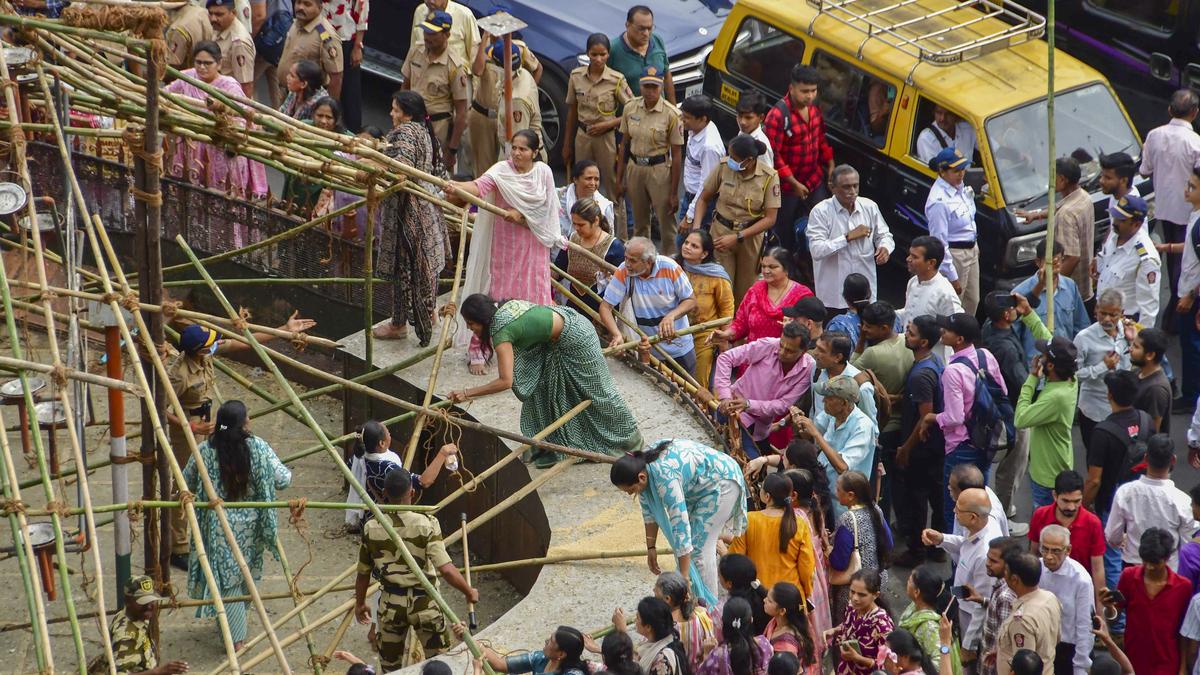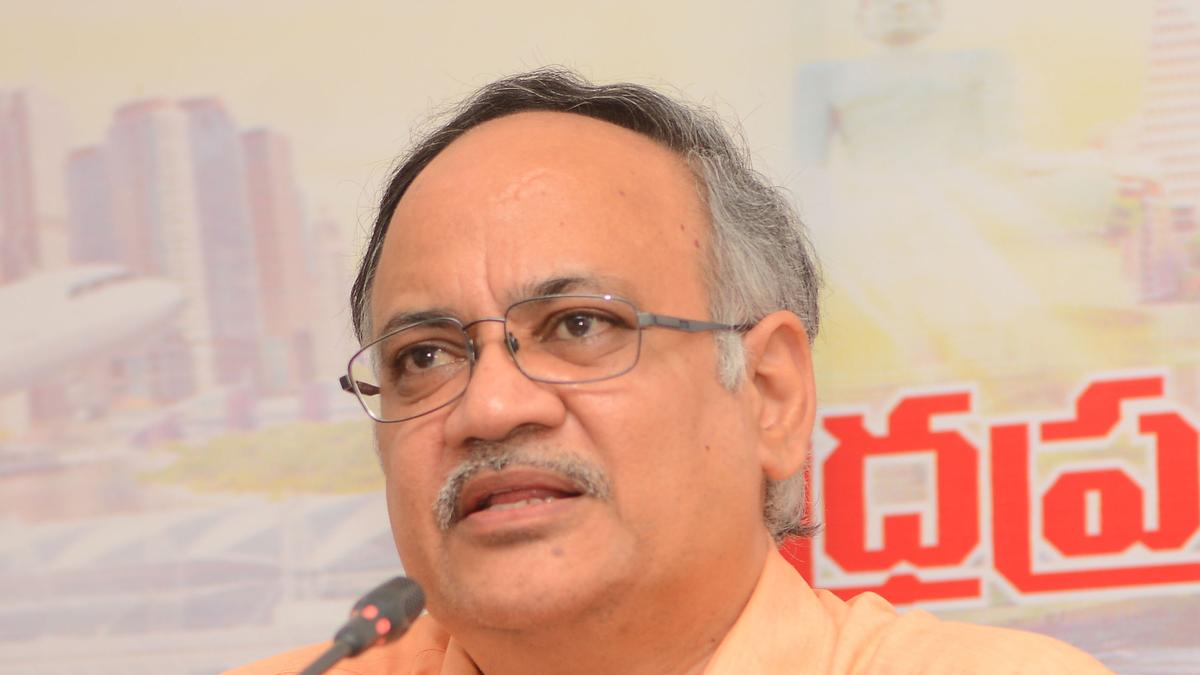Now Reading: Jain Monk Threatens Protest Over Pigeon Feeding Ban, Warns of Extreme Measures
-
01
Jain Monk Threatens Protest Over Pigeon Feeding Ban, Warns of Extreme Measures
Jain Monk Threatens Protest Over Pigeon Feeding Ban, Warns of Extreme Measures

Quick Summary
- Protests at Dadar Kabutarkhana: Members of the Jain community clashed with police and removed covers placed by the Brihanmumbai Municipal Corporation (BMC) too restrict pigeon feeding.
- Jain Monk’s Statement: Muni Nileshchandra Vijay announced plans for an indefinite hunger strike starting August 13, asserting the community would not abide by court orders if they contravened religious practices. He also claimed the protests could involve over 10 lakh Jains nationwide.
- Minister’s Response: maharashtra Skill Development minister Mangal Prabhat Lodha distanced himself from Mr. Vijay’s comments while expressing earlier support for Kabutarkhanas’ preservation.
- BMC Action: The BMC reinstated tarpaulin covers and bamboo cladding over Dadar Kabutarkhana and deployed security marshals to enforce the feeding ban due to health hazards associated with pigeon feeding.
- High Court Ruling: Bombay High Court clarified it had not ordered closure of kabutarkhanas but refrained from staying BMC’s closure decision. It emphasized “human life is of paramount importance” and suggested an expert committee study older kabutarkhanas.
Indian Opinion Analysis
The controversy surrounding Dadar Kabutarkhana reflects a complex intersection between public health concerns, religious traditions, and legal governance in India. While Jain practices advocate for non-harming of living beings thru acts like feeding animals, opponents argue that uncontrolled pigeon feeding results in important health risks such as respiratory issues caused by bird droppings. The issue raises broader questions about how civic policies should balance religious freedom with public safety in a democratic society.
The involvement of influential figures such as Muni Nileshchandra Vijay highlights escalating tensions but also underscores peaceful measures like satyagraha being preferred initially by protestors. However,remarks suggesting potential armed action complicate otherwise peaceful intentions. the Bombay High Court’s prioritization of human life indicates judiciary backing for public health decisions while leaving room for further deliberation via expert committees.
This case signals potential precedents not just for Mumbai but across urban India where traditional practices may conflict with modern civic regulations aimed at addressing large-scale challenges like pollution or zoonotic disease transmission.
Read more: https://www.thehindu.com/theme/images/th-online/1x1_spacer.png






















